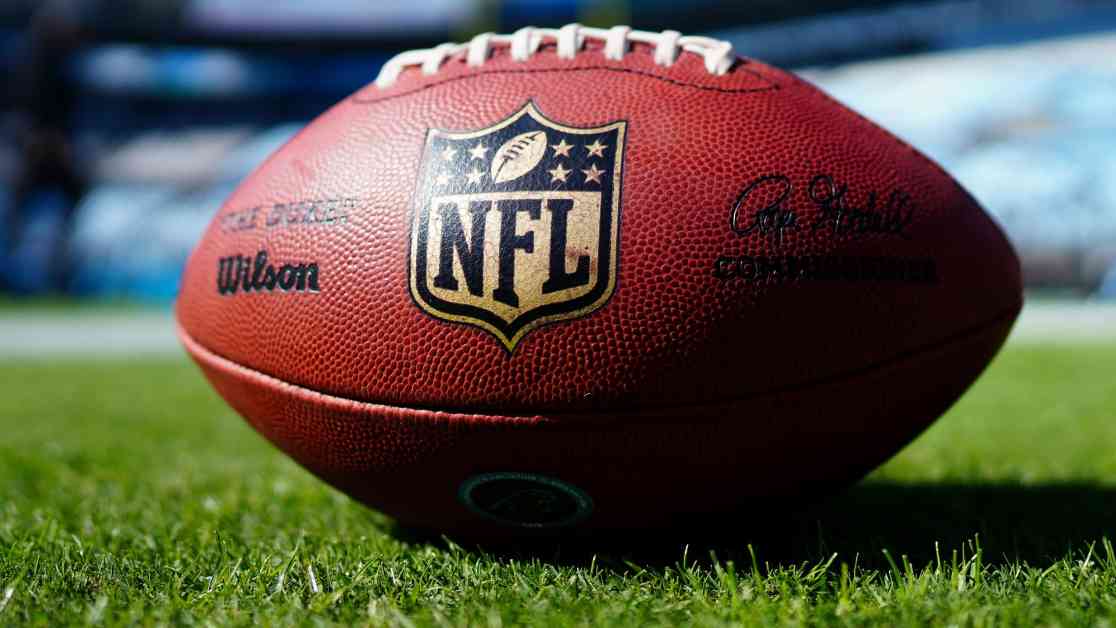NFL Owners Embrace $12 Billion Private Equity Investment Opportunity
In a historic move, NFL owners have approved a groundbreaking $12 billion private equity investment opportunity that will revolutionize the league’s financial landscape. At a specially convened league meeting in Eagan, Minnesota, on Tuesday, National Football League owners voted overwhelmingly in favor of allowing select private equity firms to acquire up to a 10% stake in a team. This landmark decision represents a significant shift in the NFL’s ownership structure, opening the doors to new capital and strategic partnerships that are expected to reshape the future of professional football.
Exclusive Membership in the NFL Ownership Club
The NFL, known for its exclusive and tightly knit ownership club, has traditionally been wary of outside investment. However, the league’s decision to welcome private equity firms into its inner circle marks a significant departure from tradition. Under the new rules, each fund or consortium will have the opportunity to enter into deals with up to six teams, providing a substantial infusion of capital and expertise to support the growth and development of NFL franchises.
The vote to approve the private equity investment initiative was supported by 31 of the 32 franchise owners, with Cincinnati Bengals owner Mike Brown being the sole dissenter. According to a source familiar with the vote, Brown’s opposition stemmed from concerns about the potential implications of introducing outside investors into the league’s ownership structure. Despite this dissenting vote, the overwhelming support from the majority of owners underscores the widespread recognition of the benefits that private equity investment can bring to the NFL.
Leading the charge on the ownership policy committee was Kansas City Chiefs owner Clark Hunt, who played a pivotal role in advocating for the introduction of private equity into the league. In an interview with CNBC’s Jim Cramer following the vote, Hunt emphasized the long-term strategic vision behind the decision, noting that the NFL had been considering such a move for over five years. While acknowledging that the 10% ownership cap represented only “baby steps,” Hunt expressed confidence in the positive impact that private equity investment could have on the league’s future.
Empowering Teams to Grow and Innovate
The infusion of $12 billion in private equity capital from approved firms such as Ares Management, Sixth Street Partners, and Arctos Partners, along with the consortium known as “The Avengers,” is expected to provide NFL teams with a significant financial boost. These firms, collectively managing $2 trillion in assets, have committed to investing in the long-term success of NFL franchises, with an average of $500 million in capital expected to be allocated to each team that receives an investment.
In a statement released following the approval, Arctos expressed gratitude for the opportunity to partner with the NFL and contribute to the league’s continued success. Similarly, Ares highlighted the appeal of investing in iconic football franchises and leveraging its extensive experience in the sports, media, and entertainment sectors to support the growth of NFL teams. The consortium of Blackstone, Carlyle, CVC, Dynasty Equity, and Ludis also welcomed the provisional approval, emphasizing their commitment to partnering with the league in a mutually beneficial manner.
Private Equity in the Sports Industry
The NFL’s decision to embrace private equity investment comes after years of discussions and deliberations within the league. NFL Commissioner Roger Goodell revealed in a July interview with CNBC that the league had received significant interest from private equity firms seeking to invest in professional football. The creation of a dedicated committee to explore the possibility of private equity funding signaled a shift in the NFL’s approach to ownership, paving the way for the approval of the groundbreaking $12 billion investment initiative.
While the NFL is the last major sports league to allow private equity ownership, it has taken a cautious approach by limiting participation to a select group of firms and capping ownership stakes at 10%. In contrast, other professional sports leagues such as the NBA, MLB, NHL, and MLS allow private equity ownership of up to 30%, reflecting the differing attitudes towards external investment within the sports industry.
Looking Ahead: Opportunities for Growth and Innovation
As NFL team valuations continue to rise, the introduction of private equity investment is expected to provide teams with the financial resources needed to pursue new opportunities for growth and innovation. The recent sale of the Washington Commanders for a record $6.05 billion underscored the financial challenges facing prospective team owners, prompting a reassessment of the league’s ownership structure. With private equity firms now poised to enter the fray, NFL teams will have access to a new source of capital to support initiatives such as new stadium construction and other strategic projects.
The Buffalo Bills and Tennessee Titans are currently in the process of building new stadiums, while the Cleveland Browns, Chicago Bears, and Washington Commanders are actively exploring plans for future stadium developments. The influx of private equity capital is expected to facilitate these projects and enable teams to enhance the fan experience, drive revenue growth, and strengthen their competitive position within the league.
In Conclusion
The NFL’s approval of the $12 billion private equity investment initiative marks a significant milestone in the league’s history, ushering in a new era of financial innovation and strategic collaboration. By embracing external investment from select private equity firms, the NFL is positioning itself for long-term success and sustainability in a rapidly evolving sports industry. As teams look to capitalize on this historic opportunity, the stage is set for a new chapter of growth, innovation, and prosperity in the world of professional football.






















